Nikki Haley is the last bulwark against Trump’s takeover of the Republican Party. How long will she last?

Nikki Haley is the last Republican candidate standing between Donald Trump and the 2024 Republican presidential nomination.
When she announced her run on 14 February 2023, she became the first woman of colour to be a major candidate for the Republican nomination and the first woman governor to run for the top job.
As the last bulwark of the old pre-2016 Republican establishment standing in Mr Trump’s way, the former UN ambassador and South Carolina governor has vowed to remain in the race until at least the primary in her home state on 24 February, but polling has her around 30 points behind Mr Trump there.
Top state officials, such as current governor Henry McMcMaster and senator Tim Scott, who Ms Haley appointed to the Senate and who previously dropped out of the presidential race, are backing Mr Trump in what some see as a cynical attempt to elevate themselves for jobs in a possible second Trump administration in January 2025.
Rising profile after strong debate performances
Proving herself to be a nimble debater, Ms Haley grew from 4 per cent on the day she launched her campaign to 12.2 per cent as of 24 January in FiveThirtyEight’s national GOP primary polling average. During that same time, Mr Trump went from 43.8 to 68.5 per cent.
She has steadily grown in strength through high-profile clashes, particularly through her sparring with anti-woke author and biotech entrepreneur Vivek Ramaswamy and Florida governor Ron DeSantis, both of whom endorsed Mr Trump after dropping out.
Even as Mr DeSantis campaigned hard in Iowa, Ms Haley came within just two points of him in the state. His departure from the race handed Ms Haley the two-person contest she always coveted, and in New Hampshire on Tuesday night, she hung on to Mr Trump, ending up just over 11 per cent behind him after the former president won the Iowa caucuses by 30 points. But the electorate and voting rules in the Granite State were some of the friendliest territory Ms Haley is likely to face this primary cycle.
Mr Trump appeared frustrated by his last remaining opponent’s decision to stay in the race despite her loss.
“Who the hell was the imposter that went up on the stage that went before and claimed victory?” Mr Trump said after Ms Haley’s speech. “She didn’t win, she lost. She did very poorly actually.”
Ms Haley didn’t claim victory – in fact, she congratulated Mr Trump on winning, but Mr Trump’s eagerness to lash out against her suggests she’s in his head even as he steamrolls to the nomination.
“She is not going to win, but if she did she would be under investigation by those people in 15 minutes. I could tell you five reasons why already, not big reasons, little stuff that she doesn’t want to talk about, but she will be under investigation in minutes,” he added in what appeared to be a threat.
Ms Haley merely noted that New Hampshire is only the second contest, and there’s a long way to go until the Republican convention in July.
From India to South Carolina via Canada
Ms Haley grew up in 1970s South Carolina to Sikh parents who immigrated from India to Canada in 1964 after her father received a scholarship from the University of British Columbia, getting his PhD before moving to Bamford in 1969 to take up a post as a biology professor at Voorhees College.
Mr Trump has been referring to Ms Haley, who was born Nimarata Nikki Randhawa, by her first name, in a seemingly racist attempt to emphasise her immigrant roots, but she has always gone by her middle name Nikki, taking the last name Haley after her 1996 marriage.
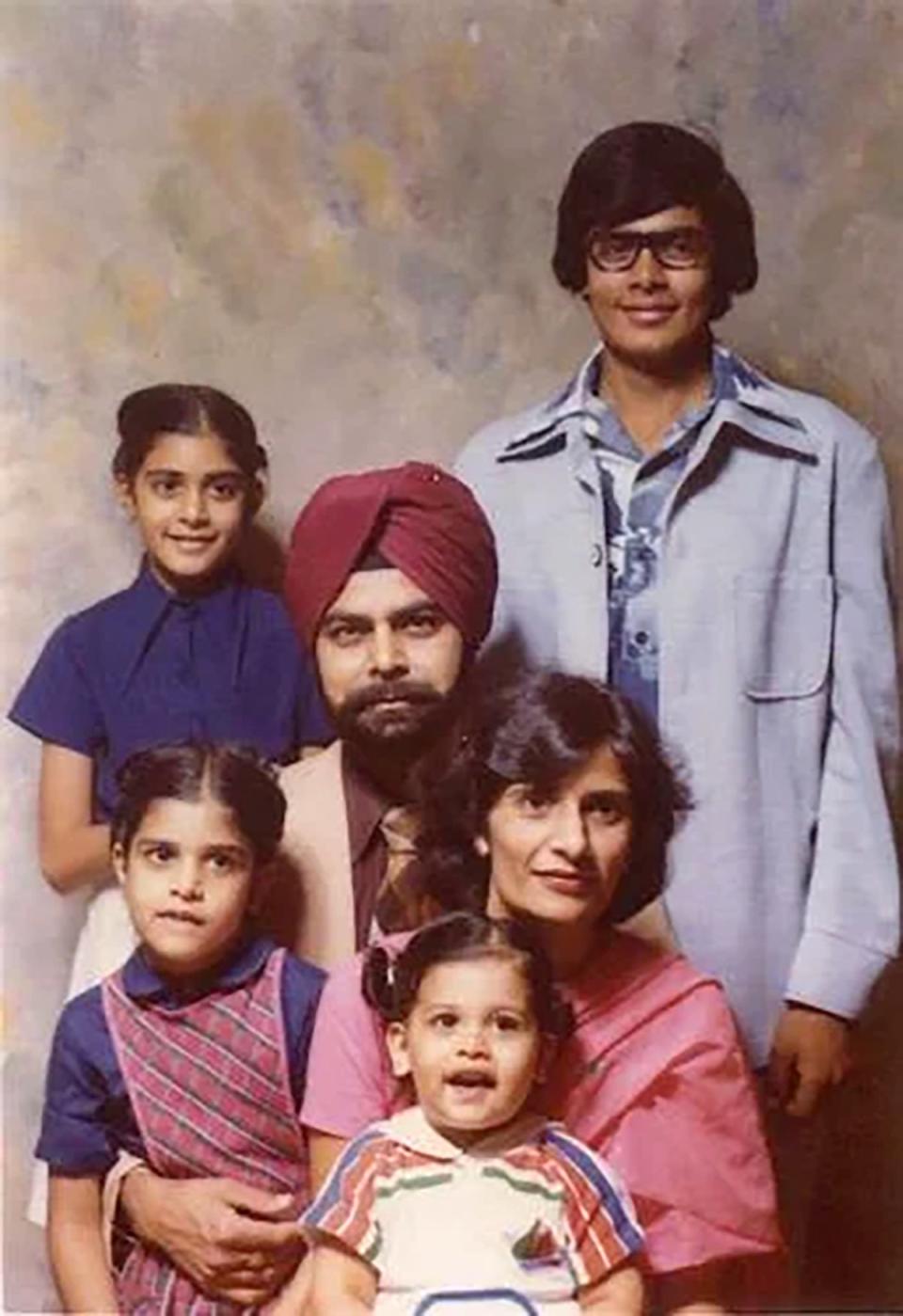
After working for her family’s clothing business starting at the age of 12, Ms Haley joined the board of directors at the Orangeburg County Chamber of Commerce in 1998 and the Lexington Chamber of Commerce in 2003, becoming the treasurer of the National Association of Women Business Owners in that same year and its president in 2004.
Entering politics inspired by Hillary Clinton
It was that year that Ms Haley won her first seat, representing District 87 in the state house, beating incumbent Republican Larry Koon by 10 points in a runoff election.
During that election, she said some people asked: “What religion is she? Is she Muslim? Is she part of that group with Osama bin Laden?”
The first Indian American to hold office in the state, she was unopposed for her re-election in 2006 and beat a Democrat in 2008 after receiving 83 per cent of the vote.
Asked by The New York Times in 2012 why there are few women from her generation in politics, she said: “It’s not because the challenge is too hard. It’s simply because women don’t run.”
“The reason I actually ran for office is because of Hillary Clinton. Everybody was telling me why I shouldn’t run: I was too young, I had small children, I should start at the school board level,” she added at the time. “I went to Birmingham University, and Hillary Clinton was the keynote speaker on a leadership institute, and she said that when it comes to women running for office, there will be everybody that tells you why you shouldn’t but that’s all the reasons why we need you to do it, and I walked out of there thinking ‘That’s it. I’m running for office.’”
Running for governor
She announced her run for governor in 2009 after encouragement from then-governor Mark Sanford, receiving the endorsement of the woman who some observers argue was the starting gun for the Trumpification of the GOP – former Alaska governor and 2008 Republican vice presidential nominee Sarah Palin.
On 2 November 2010, she beat Democratic nominee Vincent Sheheen by 51 to 47 per cent, whom she defeated again in her 2014 reelection by 55.9 to 41.3 per cent.

Rob Godfrey, Ms Haley’s former deputy chief of staff, previously recalled to The Independent that during her first race for governor, she knocked on doors and met with small groups of people “as an unknown underdog statewide candidate” and he saw her momentum rise.
He said the early primary states “favour some of her best assets as a candidate, which is the ability to connect one-on-one with voters”.
‘A state that just elected a 38-year-old Indian female’
As governor, she touted her state’s economic record and its low unemployment rate, urging businesses to open up shop in the state.
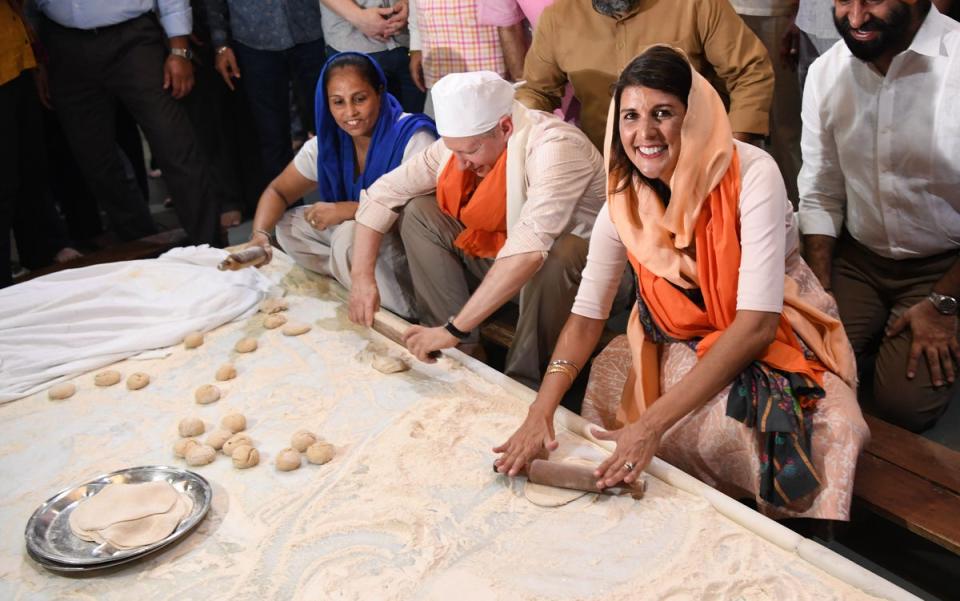
“She boasted that her state is different simply because she’s running it,” The Washington Post noted in December 2011. “The Confederate battle flag still waves outside the building, and yet she doesn’t want it taken down and doesn’t worry that any CEO she solicits to hire South Carolinians will balk at this Civil War vestige.”
“They don’t have to ask that question because you are looking at a state that just elected a 38-year-old Indian female,” she told the paper. “That says everything we need it to say.”
“If you come to South Carolina, the cost of doing business is going to be low here. We are going to make sure that you have a loyal, willing workforce and we are going to continue to be one of the lowest union-participation states in the country,” she added.
Four years later, the Confederate flag came down.
On 17 June 2015, 21-year-old white supremacist Dylann Roof entered a Bible study session at the Emanuel African Methodist Episcopal Church, the oldest Black church in the South. He killed nine people and injured a tenth – all were African Americans.
Ms Haley, who had previously opposed removing the flag despite its racist history, backed its removal on 22 June 2015.
‘Grace and credibility on an international stage’
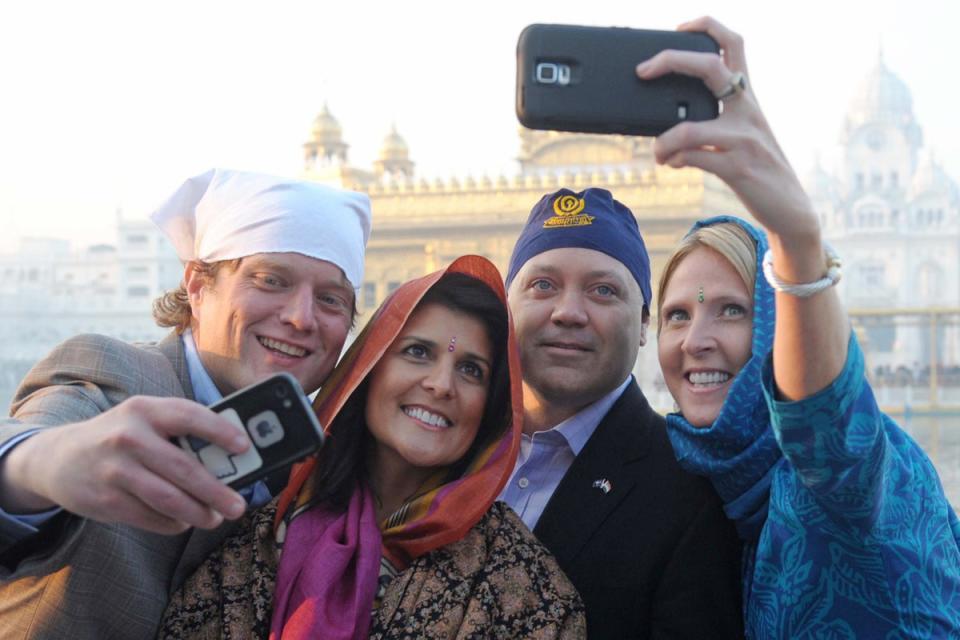
She left the governorship in early 2017 to become Mr Trump’s UN ambassador. She was overwhelmingly confirmed by the Senate with a vote of 96 to 4.
Conservative strategist Chip Felkel previously told The Independent that Ms Haley’s time at the UN representing the US has afforded her “grace and credibility on an international stage”, adding that he thinks Russia’s war of aggression in Ukraine and the war between Israel and Hamas in Gaza have boosted her in the polls.
On 2 November last year, Ms Haley pressed her international experience during a CNN town hall saying that she has spent time in Israel and personally seen the tunnels now used by Hamas to hold Israeli hostages captured during its 7 October attack on the country.
After Mr Biden suggested a pause in the fighting last year, Ms Haley said on CNN: “I don’t think we need to tell Israel to take a pause. We need to let Israel do what Israel needs to do, which is defeat and eliminate Hamas because Hamas is going to come after us too. Iran is going to come after us.”
‘The world is on fire’
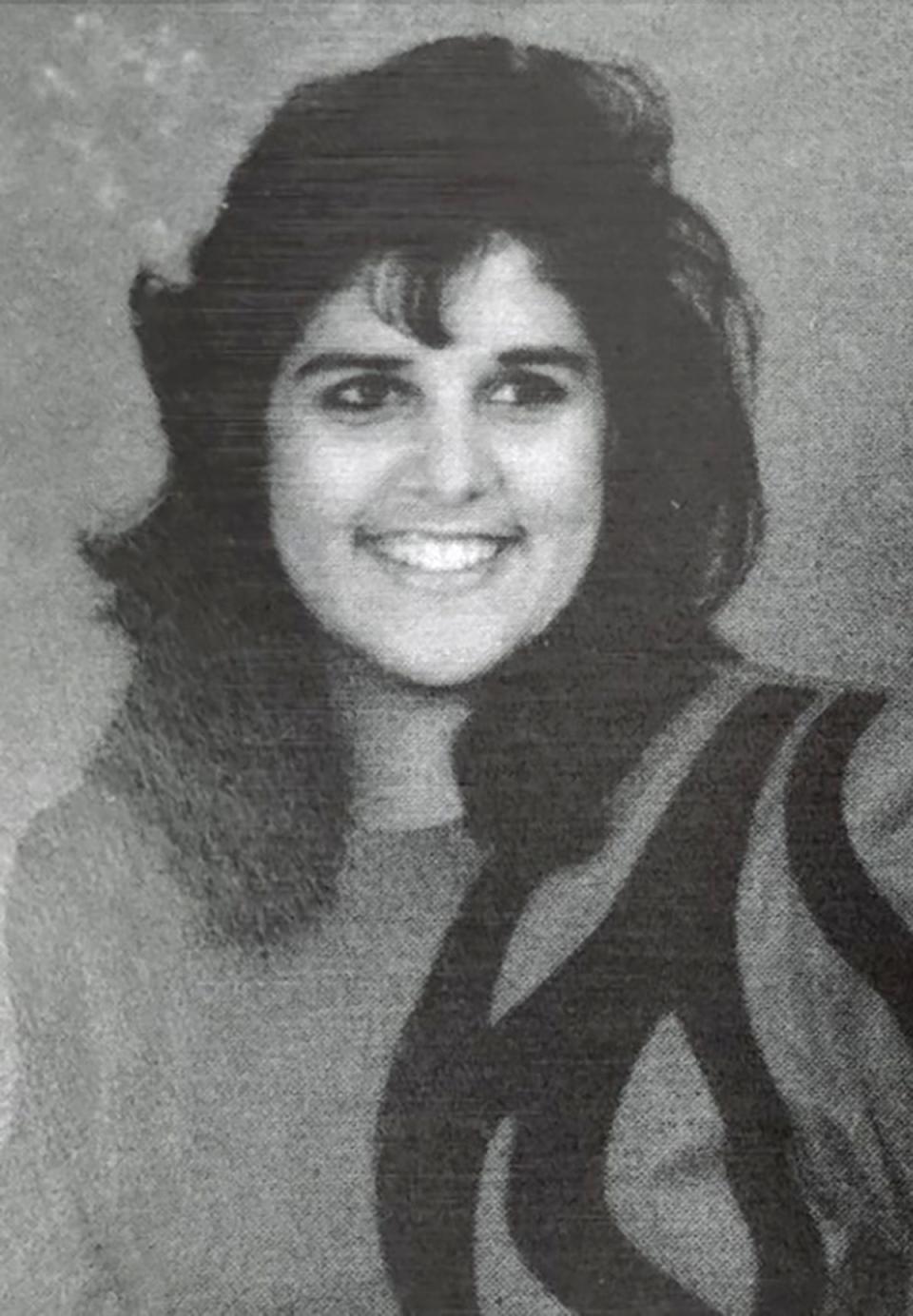
Unlike many Republicans who oppose further aid to Ukraine in its fight with Russia, Ms Haley has backed US support for the country, framing it as a struggle for freedom and independence.
“The world is on fire,” Ms Haley has said at a number of her recent campaign events.
Ms Haley has argued that the US needs to stand up to China, Russia, and Iran, warning that not supporting Ukraine will allow Russian leader Vladimir Putin to encroach Nato territory and blasted Mr Trump for his previous praise of Chinese leader Xi Jinping and his “bromance” with Mr Putin.
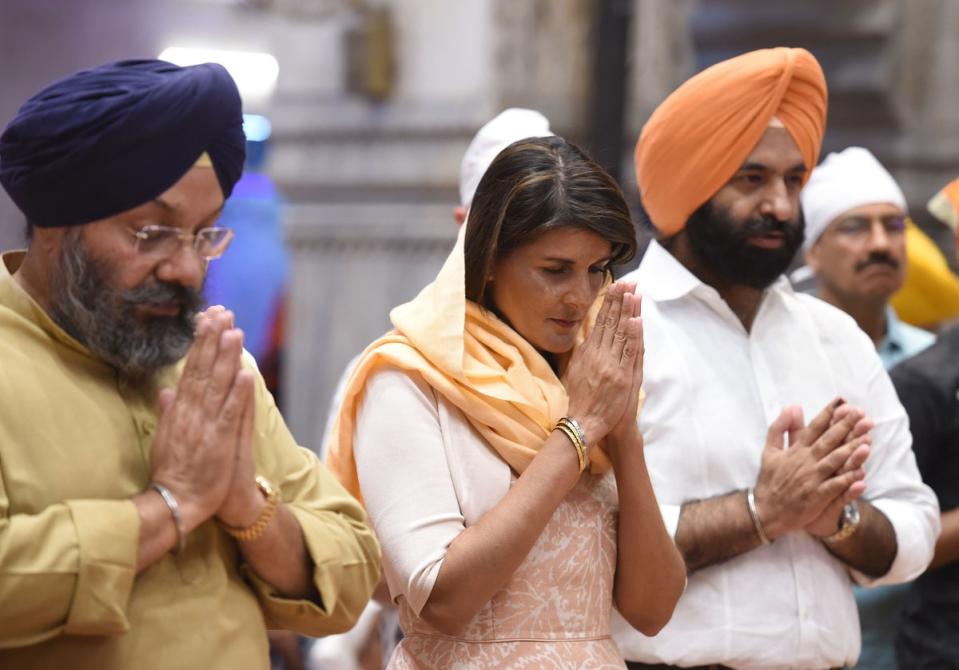
But Ms Haley’s foreign policy chops don’t appear to be doing her any favours – a Monmouth University/Washington Post poll of possible primary voters published on Monday ahead of the New Hampshire vote showed that Mr Trump is more trusted on foreign policy by 57 to 32 per cent.
‘Nikki Haley is the old Republican Party’
During a roundtable event on Monday, former New Hampshire GOP chair Jennifer Horn said Ms Haley might be attracting support from centrists and moderates, but that most of the party has grown isolationist under the leadership of Mr Trump.
“I don’t think it’s won her any votes," she said. “It’s like Nikki Haley is the old Republican Party and Donald Trump is the current Republican Party."
She may stay in the race until Super Tuesday on 5 March, but probably sooner rather than later, Mr Trump is all but certain to crush the final rampart standing in his way of reaffirming that the GOP is now resembling something akin to his own personal cult.
McKay Coppins, a staff writer at The Atlantic, wrote on X late on Monday: “I’m not saying it’s likely but there’s a non-zero chance that Donald Trump just keeps being the Republican presidential nominee every four years until he dies. (Relevant bit of trivia: His dad died at 93.)”
Mr Trump is 77. His possible 2040 campaign is only 16 years away.


